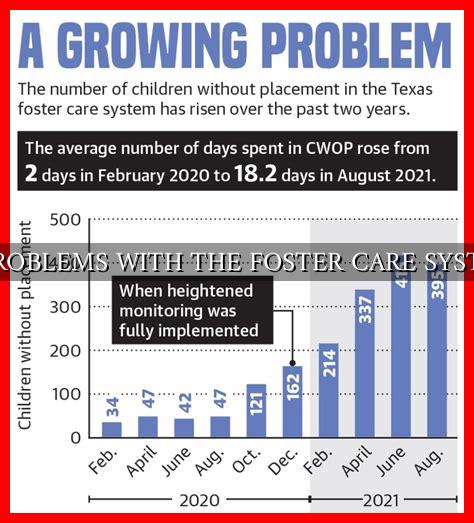-
Table of Contents
6 Problems with the Foster Care System
Foster care is intended to provide a safe and nurturing environment for children who cannot live with their biological families. However, the system is far from perfect, and there are several significant issues that need to be addressed. In this article, we will explore six key problems with the foster care system.
Lack of Stability
One of the most pressing issues in the foster care system is the lack of stability for children. Many children in foster care are moved from one placement to another, disrupting their sense of security and making it difficult for them to form lasting relationships. According to the Child Welfare Information Gateway, frequent moves can have a negative impact on a child’s emotional well-being and development.
- Children may experience feelings of abandonment and rejection.
- They may struggle to trust adults and form healthy attachments.
- Constant upheaval can lead to behavioral problems and academic challenges.
Overburdened Caseworkers
Another major problem in the foster care system is the high caseloads that social workers are expected to manage.
. Overburdened caseworkers may not have enough time to adequately assess the needs of each child or provide the necessary support and resources. This can result in children slipping through the cracks and not receiving the care they require.
- According to the National Association of Social Workers, high caseloads can lead to burnout and turnover among social workers.
- Children may not receive timely interventions or services.
- Caseworkers may struggle to build meaningful relationships with children and families.
Insufficient Resources
The foster care system often lacks the necessary resources to meet the diverse needs of children in care. This can include a shortage of foster families, mental health services, educational support, and other essential resources. Without adequate support, children in foster care may not receive the help they need to thrive.
- Many children in foster care do not have access to quality mental health services.
- There is a shortage of foster families, particularly for older children and those with special needs.
- Children may not receive the educational support they need to succeed in school.
Disproportionate Representation
Minority children are disproportionately represented in the foster care system, with African American and Native American children being overrepresented compared to their percentage in the general population. This raises concerns about systemic bias and discrimination within the child welfare system.
- African American children are more likely to be removed from their homes and placed in foster care.
- Native American children are overrepresented in the foster care system, in part due to the Indian Child Welfare Act.
- Minority children may face additional challenges in finding culturally competent care.
Aging Out of the System
When children in foster care reach the age of 18, they “age out” of the system and are no longer eligible for support services. This can leave young adults without a stable support system or the skills they need to live independently. Aging out of foster care is associated with a range of negative outcomes, including homelessness, unemployment, and involvement in the criminal justice system.
- Many young adults who age out of foster care lack the necessary life skills to succeed on their own.
- They may struggle to find stable housing and employment.
- Without ongoing support, former foster youth are at risk of experiencing homelessness and other challenges.
Legal and Policy Challenges
The foster care system is governed by a complex web of laws and policies that can be difficult to navigate. This can create barriers to accessing services and support for children and families involved in the system. Inconsistent policies and practices across states can also lead to disparities in care and outcomes for children in foster care.
- Legal challenges can delay permanency for children in foster care.
- Conflicting policies can create confusion for families and caseworkers.
- Inconsistent practices can result in disparities in outcomes for children in care.
Summary
The foster care system faces numerous challenges that impact the well-being of children and families involved. From lack of stability and overburdened caseworkers to insufficient resources and disproportionate representation, there are significant issues that need to be addressed. By recognizing these problems and working towards solutions, we can create a more effective and supportive foster care system that better serves the needs of vulnerable children.





